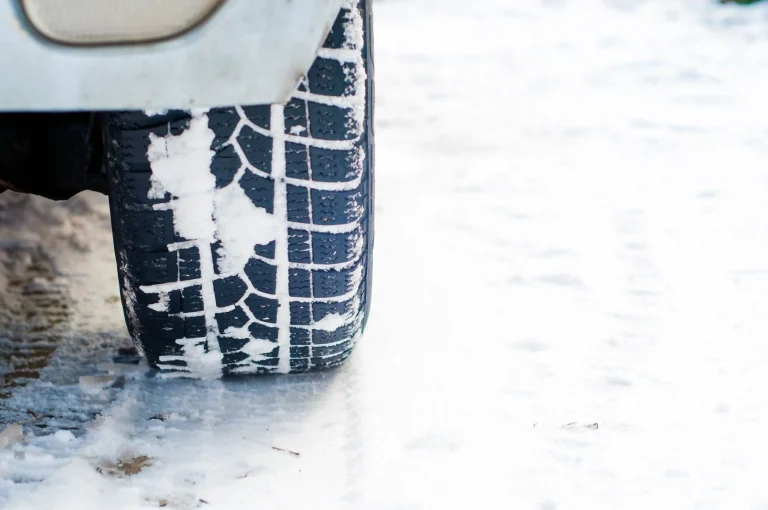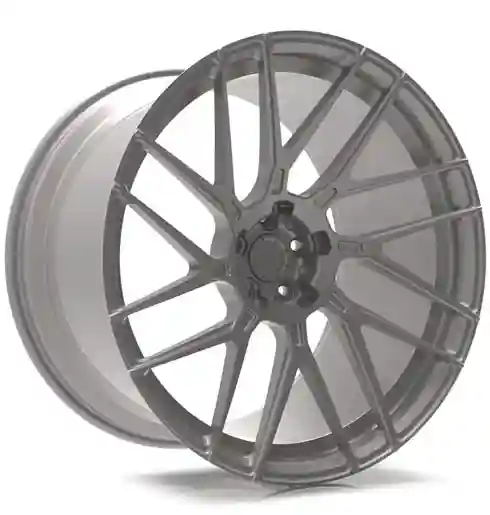Choosing the rims for your winter tires plays a crucial role in enhancing your vehicle’s safety and performance during snowy weather conditions. Alloy and steel rims come with a set of benefits ranging from durability to looks. This article will delve into the factors that can influence your decision-making process.
What Factors Influence Rim Choice for Winter Tires?
When choosing rims for winter tires in cold weather conditions, brings aspects to consider that can affect how well your car performs and keeps you safe during the winter season’s challenging weather conditions. Knowing these details will aid you in choosing between steel or alloy rims that align best with your requirements and preferences.
Material Composition and Its Impact on Performance
The ingredients used to make rims play a role in how well they work in winter weather situations. Alloy rims are usually crafted from a mix of aluminum and other metals to make them lighter than steel rims. This lighter weight can improve how the vehicle handles and its fuel efficiency. Conversely, steel rims are recognized for their durability and capacity to endure impacts, making them great for challenging winter landscapes.
Durability and Longevity of Different Rim Types
When choosing between alloy and steel wheels for your vehicle’s tires and rims durability comes into play as a deciding factor. Steel rims are generally recognized for their durability since they can withstand impacts without cracking. This durability aspect becomes particularly crucial in regions, with conditions where there are many potholes and debris. Nevertheless, perhaps a drawback of steel rims might be their proneness to rust if they are not properly maintained. Alloy wheels are less likely to get rusty; however, they could be more susceptible, to cracking under impacts.
Cost Considerations for Alloy vs. Steel Rims
When it comes to selecting rims for winter tires cost plays a role for most people. Steel rims are usually cheaper than alloy rims making them a preferred option for budget individuals. However, some may opt for alloy rims due, to their looks and performance advantages despite the higher cost.
How Do Alloy Rims Compare to Steel Rims in Winter Performance?
Choosing between alloy and steel rims involves considering their performance characteristics in winter conditions. Each type offers distinct advantages that may appeal to different preferences or driving needs.
Weight and Handling Differences
Alloy wheels are lighter compared to steel ones. Can enhance handling and acceleration by reducing unsprung weight. A potential advantage for better control in slippery conditions. Steel rims are heavier and may cause a decrease in fuel efficiency; however, some drivers appreciate the sturdy feel they offer in challenging weather situations.
Aesthetic Appeal and Customization Options
When it comes to looks and style preferences for wheels on cars or trucks, alloy rims have the hand compared to steel ones due to their versatility in finishes and designs, enabling owners to personalize their ride according to their taste and style preferences, emphasizing both aesthetics and functionality.
Are There Specific Benefits to Using Steel or Alloy Rims in Snowy Conditions?
When it comes to driving in conditions, each type of wheel has its advantages that can assist you in determining which one suits your requirements better.
Longevity of Regular Tires
Steel wheels enhance the lifespan of tires by offering sturdy protection against the rough conditions often encountered during winter driving, thus helping to prolong their durability.
Improved Handling
Alloy rims that are lighter in weight enhance the way a vehicle handles by decreasing mass and enabling faster responses while driving on snowy roads.
Traction and Grip Efficiency
The type of rim you use doesn’t directly impact traction or grip efficiency on surfaces; however, your wheel setup’s overall design and tire choice are crucial for maintaining control in such conditions.
Heat Conductivity and its Effects on Tire Health
Alloy wheels usually have more heat conductivity than steel wheels, which aids in dispersing heat from braking more effectively and potentially extending the lifespan of tires by minimizing wear caused by heat buildup over prolonged use.
Why Choose Vesteon as Your Rim Supplier?
When choosing a provider for rims and tires in winter conditions, Vesteon emerges as a top player in the field due to its dedication to excellence and customer contentment. Their diverse selection of rims designed for winter tires makes them a prime option for individuals looking for reliable performance in chilly weather.
Overview of Vesteon’s Product Offerings
Shandong Vesteon Automotive Parts (Group) Co., Ltd. was founded in August 2005 in the province of Shandong in China. Focuses on the design and production of wheels for sale. With a production capacity of 3 million units, the company provides a diverse range of wheels ranging from 10 inches to 30 inches, in various finishes and designs. This wide selection ensures that you can discover the rims to complement your particular requirements for winter tires.
Reliability and Expertise in Wheel Manufacturing
You can tell Vesteon prioritizes quality by using top-notch manufacturing equipment from Germany and Taiwan in their production processes that adhere to the ISO/TS quality management system standards for recognized rims and tires specifications like American SFI certification or German TUV certification as proof of their commitment towards excellence in meeting international standards, making them a reliable choice for all your winter tire rim needs.
Conclusion
Selecting the wheels for your winter tires plays a vital role in maintaining top-notch vehicle performance and safety in challenging weather situations. When you grasp the variances between alloy and steel wheels well, you can confidently choose the option that suits your driving requirements and tastes. Whether you value resilience or aesthetics in a wheel setup, opting for a provider such as Vesteon can elevate your winter driving journey to new heights of satisfaction.
FAQs About Choosing the Right Rims for Winter Tires
Can I Use the Same Rims Year-Round?
Throughout the year you can stick with the wheels on your vehicle; however, it’s essential to think about the unique requirements of each season regarding rim choice. Alloy wheels might enhance handling performance in the summer, and could be susceptible to damage from winter road salt usage. On the other hand, steel wheels provide durability against harsh winter weather conditions but might not deliver the same performance advantages as alloys in the warmer seasons.
How Do I Maintain My Rims During Winter?
Maintaining your rims properly during the winter season plays a role in extending their lifespan effectively. Make sure to clean your rims to get rid of road salt and debris that may lead to corrosion or harm over time. For alloy rims, make it a point to promptly fix any scratches or chips to avoid additional decay. When it comes to steel rims, check for rust. Apply anti-corrosive treatments as needed to prevent issues.



